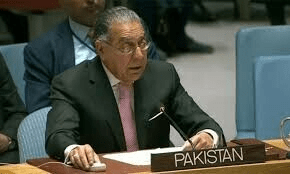WITH stability nowhere in sight in their troubled homeland, it seems that the 1.6 million registered Afghan refugees in Pakistan will be in no hurry to head home. The Afghans started arriving after 1979’s Soviet invasion and near-constant instability in Afghanistan since then has made it difficult for them to return. And with the political forecast in Afghanistan looking highly unstable following the Western withdrawal at the end of this year, a new exodus could result should the Afghan civil war intensify. A whole generation (or two) has grown up here, mostly on the fringes of society, with the refugees placing additional burden on Pakistan’s fragile infrastructure. As reports indicate, the federal government has extended the stay of the refugees for two years, much to the chagrin of the KP administration, while no proper plan has been chalked out for their repatriation. It would go against international humanitarian norms to forcibly evict the refugees, pushing them into a conflict zone. Yet a solution is needed, for at the moment it appears these unfortunate people will stay in Pakistan indefinitely. However, no short- or long-term solution to repatriate the Afghans has been elucidated, leaving the refugees in limbo while placing a burden on Pakistan that it is ill-equipped to bear. Also, there are no solid figures about the number of unregistered Afghans in this country, which is believed to be much higher than the figure for legal refugees. This raises legitimate questions about the security and socio-economic impact of having so many unregistered individuals in the country.
Perhaps the greatest tragedy is that the world has forgotten about the displaced Afghans, and the fact that Pakistan has been a generous host despite its own multiple internal crises. While the UNHCR has tried to rehabilitate and repatriate the refugees, the international community in general seems indifferent. For example, the UN’s refugee body faces a major cash crunch where arranging funds for the displaced Afghans is concerned. The Afghan government must provide internal security and stability so that its citizens can willingly return, while world powers, especially those that have been involved in Afghanistan over the decades, must help Pakistan support and ultimately repatriate the displaced Afghans.










































